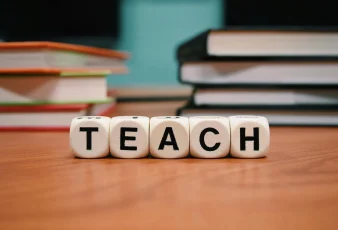Special education, a vital sector in the education world, faces unique challenges that require dedicated attention and thoughtful solutions. These challenges range from identifying individual needs to integrating technology effectively. Addressing them is essential for creating an inclusive and effective learning environment for students with special needs. This article takes a look at the various hurdles faced in special education and offers practical strategies for overcoming them. By tackling these challenges head-on, educators, parents, and administrators can ensure that all students receive the quality education they deserve.
Identifying Individual Needs
One of the primary challenges in special education is accurately identifying the individual needs of each student. Every child has a unique set of abilities and requirements, making personalized attention essential. To effectively address this, educators should employ comprehensive assessment tools and maintain open communication with parents and other professionals. These assessments help in developing tailored educational plans that cater to each student’s specific learning style and needs. Regular monitoring and adjustments to these plans are crucial to accommodate any changes in the student’s development and learning pace.
Creating Inclusive Classrooms
Inclusivity in the classroom is fundamental to the success of students with special needs. The challenge lies in creating an environment where all students, regardless of their abilities, feel valued and supported. Teachers should foster a culture of acceptance and understanding among all students. This can be achieved through inclusive teaching practices such as cooperative learning and peer mentoring. Additionally, making physical modifications to the classroom to accommodate students with mobility or sensory challenges can greatly enhance inclusivity.
Enhancing Teacher Training
Equipping teachers with the skills and knowledge to effectively educate students with special needs is key. Specialized training programs, such as obtaining a masters degree in special education online, offer educators advanced skills and practical strategies for handling diverse classrooms while still actively employed in the field. Additionally, regular professional development workshops and collaboration with special education experts can further enhance teachers’ abilities to meet their students’ needs. This ongoing education ensures that teachers stay up-to-date with the latest teaching methods and educational technologies.
Access To Resources
Access to adequate resources is a significant challenge in special education. Many schools struggle to provide the necessary tools, materials, and support services that are essential for a comprehensive special education program. Overcoming this challenge requires advocacy and innovative thinking. Educators can seek grants, collaborate with local businesses, and engage in community partnerships to secure funding and resources. Utilizing online platforms and open-source educational materials can also provide cost-effective solutions.
Integrating Technology Effectively
The integration of technology in special education offers tremendous opportunities to enhance learning experiences for students with special needs. The challenge lies in choosing the right technology and using it effectively. Educational software, interactive apps, and assistive devices can be tailored to support various learning disabilities and styles. Teachers need to be trained not only in the technical aspects of these tools but also in how to incorporate them into lesson plans in a way that complements traditional teaching methods.
Managing Behavioral Challenges
Behavioral challenges are common in special education settings and can be a significant obstacle to learning. Teachers need to develop effective strategies for managing these behaviors while maintaining a positive and supportive classroom environment. This involves understanding the root causes of disruptive behavior and implementing individualized behavior management plans. Techniques such as positive reinforcement, clear communication of expectations, and consistent routines can be highly effective. Collaboration with behavioral specialists and incorporating social-emotional learning into the curriculum can also provide additional support.
Family And Community Engagement
Engaging families and communities is pivotal in special education. The challenge lies in building a bridge between the school and home, ensuring consistent support for the student. Effective communication is key. Regular meetings, updates, and collaborative planning sessions with parents can foster a unified approach to a child’s education. Schools can also tap into community resources, such as local experts and support groups, to provide additional assistance and learning opportunities. This collaboration enriches the educational experience and ensures that students receive support both at school and at home.
Adapting Curriculum And Instruction
Adapting curriculum and instruction to meet the diverse needs of students in special education is a complex but essential task. Educators need to employ differentiated instruction strategies that cater to various learning styles and abilities. This might include using multi-sensory teaching methods, modifying assignments, or providing alternative assessment options. The key is flexibility and creativity in teaching methods to ensure that all students have access to the curriculum in a way that is meaningful and effective for them.
Navigating Funding And Budget Constraints
Funding limitations pose a significant challenge in special education. Schools often struggle with budget constraints that can limit resources and support services. Overcoming this requires innovative financial management and advocacy. Educators and administrators need to be proactive in seeking grants, partnerships, and fundraising opportunities. It’s also important to prioritize spending, focusing on the most critical resources that will have the greatest impact on student learning and development.
Ensuring Emotional And Mental Well-Being
Addressing the emotional and mental well-being of students in special education is as important as their academic success. The challenge is in recognizing and supporting the emotional needs of these students. Educators can create a supportive classroom environment where students feel safe and understood. Implementing social-emotional learning programs, providing access to counseling services, and training staff to recognize and respond to mental health issues are key strategies in supporting the holistic well-being of students with special needs.
Legal And Ethical Considerations
Navigating the legal and ethical considerations in special education can be daunting. Educators and administrators must be well-versed in the laws and policies governing special education, including the Individuals with Disabilities Education Act (IDEA). Staying informed about legal responsibilities and ethical practices is essential in providing appropriate and fair education to all students. Regular training sessions and legal updates for staff can help ensure compliance and uphold the highest standards of educational equity and accessibility.
Measuring Progress And Success
Measuring progress and success in special education requires a nuanced approach. Traditional academic metrics may not fully capture the achievements of students with special needs. Instead, progress should be assessed based on individual learning goals and milestones. This involves setting realistic and personalized objectives for each student and using a variety of assessment tools to track their growth. Celebrating small victories and continuous improvement is essential in acknowledging the efforts and achievements of these students.
The field of special education is filled with various challenges, but each obstacle presents an opportunity for growth and improvement. By addressing these challenges head-on with practical strategies, commitment, and creativity, educators can create an environment where all students thrive. The process is not just about overcoming hurdles but also about celebrating the unique abilities and successes of each student. With a positive and proactive approach, educators can make special education a rewarding and impactful field for all involved.
Read Also:




























